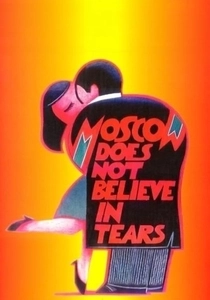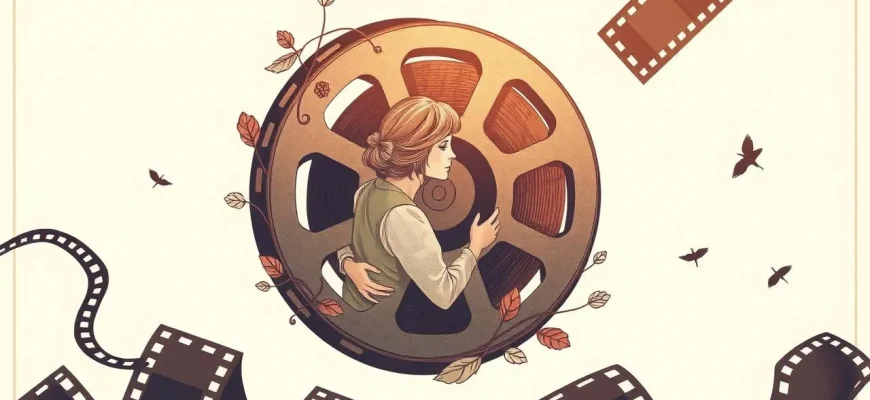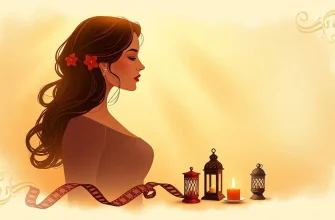Embark on a cinematic journey through the heart of the Soviet Union with these ten melodramas. These films not only showcase the complexities of love and relationships but also provide a unique window into the cultural, social, and political fabric of the USSR. Each film in this collection has been carefully selected for its emotional depth, historical context, and its ability to resonate with audiences across different eras. Whether you're a fan of classic cinema or simply curious about Soviet life, these films offer a rich tapestry of stories that transcend time and borders.

The Dawns Here Are Quiet (1972)
Description: While primarily a war film, it includes a strong romantic subplot, focusing on the lives of five female anti-aircraft gunners during WWII. The film's exploration of love amidst the backdrop of war adds a unique layer to Soviet melodrama.
Fact: It was remade in 2015, highlighting its enduring appeal.
 Watch Now
Watch Now 
The Station Master (1972)
Description: Based on a story by Alexander Pushkin, this film tells the tragic tale of a station master's love for his daughter and her unfortunate fate, reflecting on themes of love, loss, and the harshness of life in rural Russia.
Fact: It was part of a series of films adapting Pushkin's works.
 30 Days Free
30 Days Free 
The Irony of Fate, or Enjoy Your Bath! (1975)
Description: A New Year's Eve comedy-drama about a man who, due to a mix-up, ends up in the wrong city and apartment, leading to a romantic entanglement. This film is a beloved classic, capturing the essence of Soviet life and the universal themes of love and fate.
Fact: It has become a tradition in Russia to watch this film every New Year's Eve.
 30 Days Free
30 Days Free 
Office Romance (1977)
Description: A humorous look at workplace romance, this film explores the dynamics between a strict boss and his subordinate, leading to unexpected love. Its comedic take on love and bureaucracy in Soviet offices makes it a must-watch.
Fact: It was one of the top-grossing films in the Soviet Union.
 30 Days Free
30 Days Free 
Moscow Does Not Believe in Tears (1980)
Description: This film follows the lives of three women over two decades, exploring themes of love, career, and the changing social landscape of the USSR. Its portrayal of strong female characters and the challenges they face in a rapidly evolving society makes it a standout in Soviet cinema.
Fact: It won the Academy Award for Best Foreign Language Film in 1981, becoming the first Soviet film to do so.
 30 Days Free
30 Days Free 
Autumn Marathon (1979)
Description: This film examines the life of a translator caught between his wife and his mistress, offering a bittersweet look at love, duty, and personal freedom in the later years of the USSR.
Fact: The film's title metaphorically reflects the protagonist's life journey.
 30 Days Free
30 Days Free 
The Very Same Munchhausen (1979)
Description: While not strictly a melodrama, this film includes romantic elements in its satirical take on the life of Baron Munchhausen, blending love stories with fantastical adventures in a Soviet setting.
Fact: It was one of the first Soviet films to use special effects extensively.
 30 Days Free
30 Days Free 
The Pokrovsky Gate (1982)
Description: Set in the 1950s, this film intertwines the lives of several characters living in a communal apartment, exploring themes of love, nostalgia, and the passage of time in post-war Soviet society.
Fact: It was one of the first Soviet films to openly discuss the Stalinist era.
 30 Days Free
30 Days Free 
A Cruel Romance (1984)
Description: Based on Alexander Ostrovsky's play "Without a Dowry," this film delves into the life of a young woman navigating love and societal expectations in 19th-century Russia. Its rich storytelling and emotional depth make it a poignant addition to this collection.
Fact: The film was one of the highest-grossing Soviet films of the 1980s.
 30 Days Free
30 Days Free 
The Love of Mankind (1972)
Description: This film captures the essence of human connection through the story of a doctor and his patients, exploring themes of compassion, love, and the human spirit in the context of Soviet healthcare.
Fact: It was praised for its realistic portrayal of medical professionals.
 30 Days Free
30 Days Free 








